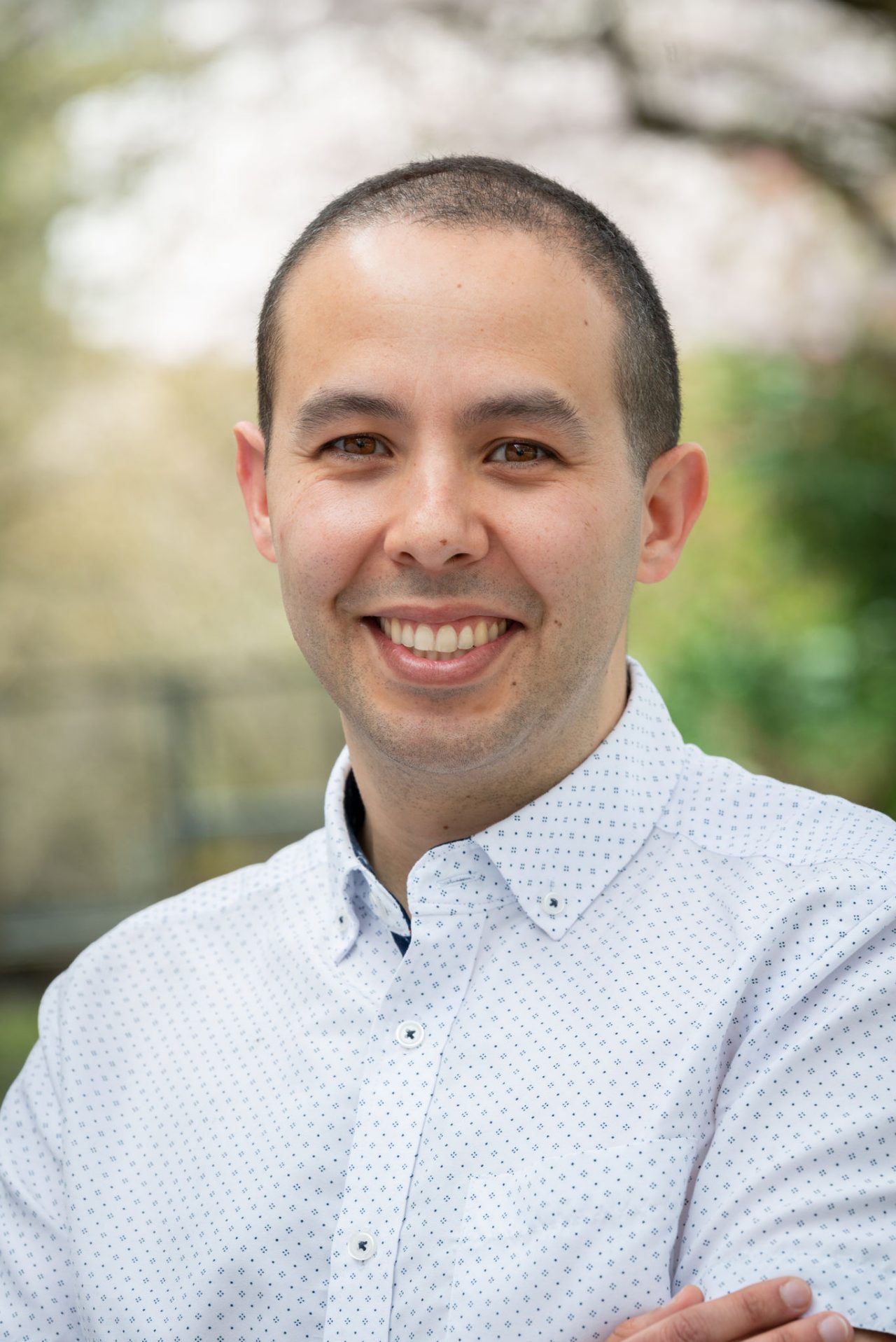- My MOC
- Directory
Menu
 3 MIN READ
3 MIN READ
This year’s recipients of the Royal College’s Early Career Leadership Awards are innovating in medical education and improving care for Canadians:
Julie Kromm, MD, FRCPC, has been named the 2025 recipient of the Royal College Award for Early Career Leadership in Medical Education/Continuing Professional Development.

Dr. Julie Kromm (submitted photo)
A rising leader in neurocritical care, Dr. Kromm is a clinical associate professor at the University of Calgary and an intensivist and neurologist at the Foothills Medical Centre, Rockyview General Hospital and South Health Campus. She holds Royal College certifications in both Neurology and Critical Care Medicine, along with subspecialty training in neurocritical care (NCC).
“Dr. Kromm is a superstar and emerging leader in critical care and neurocritical care education,” says Henry T. Stelfox, MD, FRCPC, FCAHS, deputy dean of the Faculty of Medicine and Dentistry at the University of Alberta. “She is a passionate, inclusive, supportive, dedicated and empowering teacher, coach and mentor, as well as an outstanding medical education administrator.”
Dr. Kromm is driven by what she sees as a pressing need for better care for neurocritical patients and their families.
“Neurocritical care patients suffer from life-threatening neurological disorders — such as traumatic brain injury, hypoxic ischemic brain injury, neurovascular conditions, seizures and CNS infections,” she explains. “While not usually thought of as an underserved population, in a way they are, as they often fall through the cracks.”
Determined to change that, Dr. Kromm launched Canada’s first competency-based NCC fellowship program. The result has been remarkable. “The clinical and academic curricula provide such outstanding training experiences that the fellowship program is attracting applicants from around the world,” says Dr. Stelfox. “Building a high-quality fellowship program from scratch is impressive. Having it acquire an international reputation for excellence in such a short period of time is incredible.”
Dr. Kromm’s efforts also secured a $2.5 million philanthropic gift to develop NCC in Calgary — funding that is supporting both advanced care and education for front-line clinicians. “I've never been involved in anything of that scale before,” she says. “It was a massive learning experience, and I had phenomenal people guiding me along the way.”
As the Calgary NCC fellowship director and critical care assistant program director, Dr. Kromm is known for personalizing support for her trainees.
“She took the time to understand my individual learning needs and tailored her support to help me succeed,” says Danica Quickfall, MD, FRCPC, now an intensivist in Chicago. “Dr. Kromm recognized the unique challenges faced by women in critical care and medicine. She initiated and facilitated meetings specifically for the women in our fellowship, creating a space for open dialogue about issues that are often underrepresented in medical training.”
Puneet Kapur, MD, FRCPC, has been named the 2025 recipient of the Royal College Award for Early Career Leadership in Health Policy/Health Systems.

Dr. Puneet Kapur (submitted photo)
When COVID-19 hit, Saskatchewan’s health care system needed an immediate fix to a problem no one had anticipated: how to connect thousands of patients with timely medical advice when doctors’ offices were closed.
In May 2020, at the height of the COVID lockdowns, calls to the province’s nursing-led Healthline 811 service skyrocketed, jumping tenfold in a single day to more than 4,000. The phone system collapsed. The solution? Add physicians to the 811 hotline so patients could be diagnosed and treated virtually.
With a background in computer science, Dr. Kapur, an Emergency Care physician, was hired to build and launch the new service.
“There was no master organizational plan, budget or administrative support,” say James Stempien, MD, FCFP, head of Emergency Medicine at Saskatchewan Health Authority and Brent Thoma, MD, FRCPC, DRCPSC, interim associate dean, PGME at Toronto Metropolitan University.
“Working alone from home, Dr. Kapur built the entire program from the ground up — recruiting 30 physicians, creating clinical standards, training doctors, developing policies and procedures, and collaborating with leaders across the province.”
The Virtual Basic and Episodic Care (VIBEX) program was born.
“If I've done anything efficacious in the health care system, it is surely the creation of that virtual physician program,” says Dr. Kapur. “I've affected more patient lives and had better outcomes than anything else I’ve ever done.”
The results speak for themselves: in four years, VIBEX has cared for more than 30,000 patients, helping 75 per cent of them avoid unnecessary emergency department visits.
The program’s success prompted a new challenge — preventing rural emergency department closures due to staffing shortages. Dr. Kapur adapted what he had learned from VIBEX to launch VIPER (Virtual Physician for Emergency Response), which allows onsite nurses in rural hospitals to consult virtually with physicians by phone or video.
So far, VIPER has prevented more than 250 days of rural emergency department closures, keeping care close to home for countless patients across Saskatchewan.
Anas Manouzi, MD, FRCPC, has been named the 2025 recipient of the Royal College Award for Early Career Leadership in Professional Practice/Patient Care.

Dr. Anas Manouzi (submitted photo)
After completing his Pediatric Emergency Medicine (PEM) training, Dr. Manouzi became part of the inaugural cohort of the BC Children’s Hospital Department of Pediatrics’ Hudson Scholars in Equity, Diversity and Inclusion — a two-year program that proved transformative. He immersed himself in critical race theory, the history and realities of racism in medicine, and the specific ways that anti-Indigenous racism operates within health care.
Today, he brings these learnings to his role as clinical lead for health equity and anti-racism in the emergency department.
“Dr. Manouzi has been a leader fighting for decolonization across our institution and has been both collaborative and unafraid to challenge traditional ways of thinking,” says PEM colleague Garth D. Meckler, MD, FRCPC, MSHS.
One example: Dr. Manouzi designed and led, along with an interdisciplinary group of colleagues from the emergency department and the Indigenous Health team, a unique M&M (morbidity and mortality) session dedicated to learning how Indigenous-Specific Racism and Discrimination (ISRD) contributed to the death of Keegan Combes, as detailed in Remembering Keegan: A BC First Nations Case Study Reflection.
“This devastating story details the ways in which anti-Indigenous racism in our health care system directly led to the death of a young Indigenous man,” explains Dr. Meckler. “Though he was not treated in our hospital, we presented his story as if he had been, and used the insights and teachings shared by the report’s Indigenous authors to highlight our own structural racism and opportunities for improvement.”
The emergency department has since made a commitment to work alongside the Indigenous Health team and hold annual Patient Safety Rounds dedicated to addressing and preventing ISRD. This year’s session centered the perspectives of a family directly impacted by ISRD and included Elders and Knowledge Keepers.
Dr. Manouzi also spearheaded a unique multidisciplinary initiative called the “health equity hour” where he facilitates focused discussion on topics surrounding anti-racism, colonialism and health equity.
“I think I've been really blessed in B.C. to learn from local Indigenous leaders and Indigenous leaders within the institution where I work at PHSA [Provincial Health Services Authority],” he says. Dr. Manouzi has been particularly influenced by the 6 Coast Salish teachings gifted to his institution by Coast Salish Knowledge Keeper Shane Pointe, Siem Te'ta-in.
“The 6 Coast Salish teachings teach me not to simply continue saying, ‘this is out of my locus of control,’ but to say that I need to be consistent in my outrage. I need to be consistent in the way that I apply those values.”
Pediatric Emergency Physician and colleague Melissa Chan, MD, FRCPC, says that Dr. Manouzi’s empathy enables him to provide effective, holistic care for patients as well as families in crisis. “He is also a strong advocate for patients who may be at risk of discrimination or face significant barriers within our health care system.”